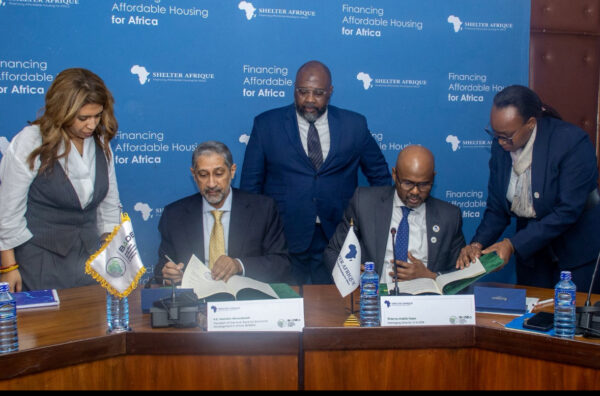Nairobi, July 31, 2025 – Shelter Afrique Development Bank (ShafDB) has signed a strategic agreement with the Arab Bank for Economic Development in Africa (BADEA) for a concessional financing of $120 million to support its capital increase program. This financing aims to enable eligible member states to settle and increase their subscriptions to the capital of the pan-African institution specializing in affordable housing and urban development.
This innovative mechanism, supported by BADEA, offers cascade loans on competitive terms, thus facilitating the involvement of member states in strengthening the bank’s capital. The agreement marks a crucial step in consolidating the financial base of ShafDB and amplifying its mandate to finance sustainable urban infrastructure in Africa.
The program provides for an initial fair allocation of capital, followed by a progressive redistribution according to a pro-rata temporis basis, and then according to the order of subscription. This approach aims to encourage active and fair participation of member states while consolidating the financial strength of the institution.
According to the President of BADEA, H.E. Abdullah KH ALMUSAIBEEH, this support is part of a shared strategic vision to promote decent housing and inclusive urban development on the continent. On his part, Thierno Habib-Hann, Director General of ShafDB, welcomed decisive support in a pivotal phase of the bank’s institutional transformation, endorsed at the extraordinary general assembly held in Algiers in October 2023.
Formally launched in June 2024 in Kigali, the capital increase program was approved by shareholders, with a board approval in December 2024 for a raise exceeding $200 million. The objective is to strengthen leverage, broaden the shareholder base, achieve investment-grade credit ratings, and attract new institutional investors.
Thanks to this momentum, ShafDB aims to increase its financing capacity across the housing value chain, mobilize more resources in international and African capital markets, and consolidate its role as a catalyst for inclusive urban development in its 44 member states.


